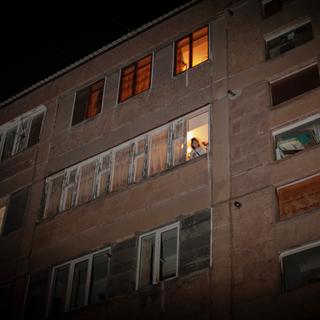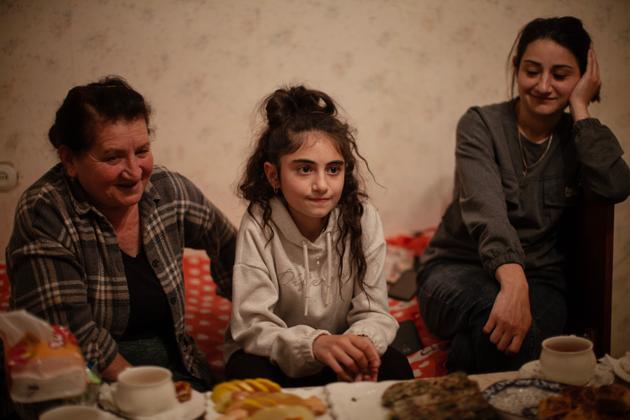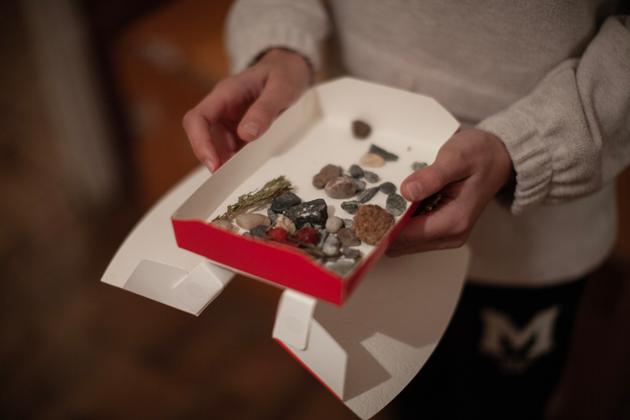


'I miss Nagorno-Karabakh so much': The new life of refugees in Armenia
FeatureThe 100,000 inhabitants of the former separatist enclave are still in shock as they try to rebuild their lives after losing their territory to Azerbaijan in September.
Before fleeing Nagorno-Karabakh, 13-year-old Natalie Musayelian hastily gathered a handful of stones, a branch and some berries and hid them in a small chocolate box with the key to her house in Martuni, in the former separatist enclave. Since finding refuge in Armenia with her grandmother and aunt, the teenager clutches her treasures every morning, remnants of her former life, and breathes in their scent deeply. "It reminds me of home. I miss Artsakh [the Armenian name for Nagorno-Karabakh] so much!"
More than 100,000 Armenians, almost the entire population, fled Nagorno-Karabakh following the Azerbaijani offensive on September 19, which led to the fall of the self-proclaimed republic and Baku's takeover of the territory after 30 years of conflict.
Two months on, the shock of their sudden departure was still raw, but they were all trying to rebuild their lives in Armenia. "The initial survival phase is over," observed Aneta Kachotian, a psychologist tasked with monitoring around 30 families. "They have lost everything and now have to start from scratch. This puts them under so much stress that many feel 'frozen,' unable to envision the future."


The first challenge was finding a place to live. Many refugees were still moving around the country, looking for somewhere to settle. Natalie's family finally found a modest flat rented for 40,000 drams (€91) in Jermuk, a famous spa town popular with Russians and close to the border with Azerbaijan. "It was very hard to find anywhere else, everything is so expensive! Here, it's more affordable," explained Varsik, Natalie's aunt. And with good reason: Since Azerbaijan bombed it in September 2022, this town has been deserted. All that could be heard around the lake, usually bustling with thousands of tourists at this time of year, was the quacking of ducks and the wind in the trees.
When the Musayelian family told their friends they were moving here, they received alarmed reactions: "Aren't you afraid?" Most of the refugees have refused to be relocated to the border areas, which have become the deadliest in the last three years. "They say they're tired of the war," explained Vardan Sargsyan, deputy mayor of Jermuk. "We're worried too. The Azerbaijanis are five kilometers away, on the mountains, and they're fortifying their positions." The vast majority of new arrivals have already left for quieter areas.
The challenge of finding a job
Over 5,500 refugees have settled in Hrazdan, an industrial town in the Kotayk region, north of Yerevan. "In every building, you have at least 30 people from Nagorno-Karabakh," said Samvel Manoukian, one of the residents, pointing to the dilapidated buildings. Living conditions are basic. "They live in mostly abandoned accommodation with no heating," said the taxi driver. "But they have no other choice."
You have 65% of this article left to read. The rest is for subscribers only.
